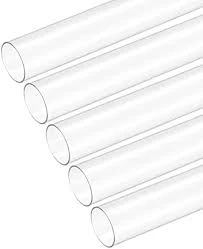Ліст . 14, 2024 21:14 Back to list
hdpe black pipe
Understanding HDPE Black Pipes Applications and Benefits
High-Density Polyethylene (HDPE) black pipes have emerged as a popular choice in various industries due to their unique properties and benefits. This material, known for its strength, flexibility, and resistance to environmental stressors, has paved the way for its widespread use in applications ranging from water supply systems to industrial processes.
Composition and Properties
HDPE is a thermoplastic polymer made from petroleum. It is highly resistant to impact and can withstand a wide range of temperatures, making it perfect for diverse environmental conditions. One of the distinguishing features of HDPE black pipes is their color. The black outer layer helps protect the pipe from ultraviolet (UV) light and improves its durability. This is particularly important for pipes installed in outdoor settings, where exposure to sunlight can degrade less robust materials over time.
The flexibility of HDPE pipes allows for easier installation, particularly in challenging terrains. They can be bent without risking damage, which is a significant advantage over rigid materials like PVC or metal. Additionally, HDPE pipes are lightweight, making transportation and handling easier, ultimately lowering installation costs.
Applications
One of the primary uses of HDPE black pipes is in water and wastewater management systems. The corrosion-resistant nature of HDPE makes it highly suitable for transporting drinking water and wastewater without compromising safety or quality. Municipalities often choose HDPE pipes for their long-lasting service life, which typically exceeds 50 years, thereby reducing maintenance costs.
hdpe black pipe

In agriculture, HDPE black pipes are commonly used for irrigation systems. Their ability to withstand various weather conditions and pressures makes them ideal for applications that require reliable and durable piping solutions. The flexibility of these pipes allows for creative irrigation designs, ensuring crops receive adequate water supply throughout the growing season.
The industrial sector also benefits from HDPE black pipes, as they are often utilized in chemical processing and for transporting hazardous materials. Their resistance to chemical corrosion ensures that harmful substances do not compromise the integrity of the piping system, enhancing workplace safety.
Environmental Considerations
In an era of increasing environmental awareness, HDPE pipes present a more sustainable choice compared to traditional materials. They are recyclable, which minimizes waste and promotes a circular economy. Furthermore, because HDPE pipes can be installed with less excavation and disruption to the surrounding environment, they contribute to reducing the carbon footprint associated with construction projects.
Conclusion
In conclusion, HDPE black pipes represent a blend of innovation and practicality in modern infrastructure. Their superior properties—resistance to corrosion, flexibility, lightweight nature, and long service life—make them an ideal choice for various applications. Whether in water management, agriculture, or industrial processes, HDPE black pipes offer solutions that not only meet but often exceed industry standards. As businesses and municipalities continue to seek sustainable and efficient infrastructure options, the demand for HDPE black pipes is likely to rise, solidifying their position as a trusted material in the pipeline industry.
-
Durable PP Rigid Sheet: Lightweight, Chemical Resistant Solutions
NewsAug.21,2025
-
PVC Grey Sheet for Extraction: Chemical Resistant & Durable
NewsAug.19,2025
-
Durable PVC Pipe Fittings for Plumbing & Irrigation Needs
NewsAug.18,2025
-
HDPE Steel Belt Reinforced Spiral Corrugated Pipe | High Strength
NewsAug.17,2025
-
HDPE Pipe Fittings: Durable, Leak-Proof Solutions
NewsAug.16,2025
-
Premium CPVC Sheet: High-Temp & Chemical Resistant Solutions
NewsAug.15,2025

